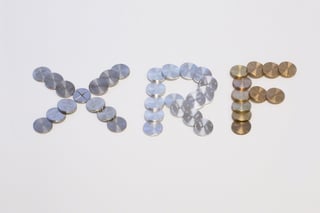Positive material identification or PMI is the act of confirming a type of metal alloy based on its chemical composition. This methodology is used in a wide range of applications where the specific chemical composition or grade of the alloy is critical and specific for its end use. PMI is used most commonly in industrial settings where use of the wrong metal alloy grade can result in premature corrosion or even failure of a structure, creating a potentially serious safety hazard. The chemical verification of alloys already in use in various industrial applications often requires that the analysis be non -destructive and performed insitu. The analysis is most commonly performed using a handheld XRF unit often called a "PMI gun" or with a portable Spark-OES instrument.

These portable units are usually pre-calibrated with general-purpose applications in the factory and are programmed to report the alloy grade based on the chemical analysis collected by the instrument. They are generally very easy to use and operate with a short analysis time, meaning that a single individual can perform a large number of quality checks, on many different types of material in a single shift.
PMI is being used in more and more settings, from inspection of piping compatibility in refinery settings, to sorting scrap metal for recycling. Each of these applications presents it own unique challenges for analysis. The pre-calibrated methods on the instruments typically cover a wide-range of alloy types, and operators want to be sure that their result is accurate for the specific metals being tested. Verification of the accuracy is done with certified reference materials, which are run as a check sample for each alloy type being tested. ARMI |MBH offers a wide range of metal alloy CRM's. Our portfolio covers stainless, carbon and low alloy steels, copper, brass, bronze, nickel alloys, cobalt, Titanium alloys, aluminum alloys, magnesium alloys, lead and tin alloys, zinc and even zirconium alloys. Our products are offered either as thin disks suitable for XRF systems, or thicker disks for portable spark instruments.
See what is available on our product page or contact us for more details.


